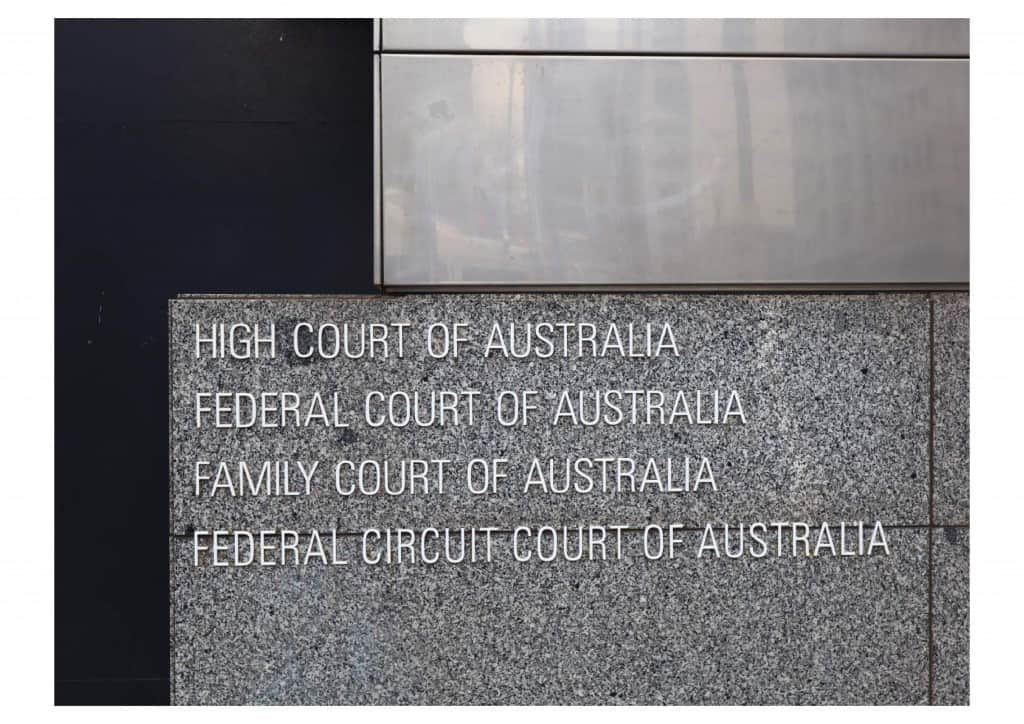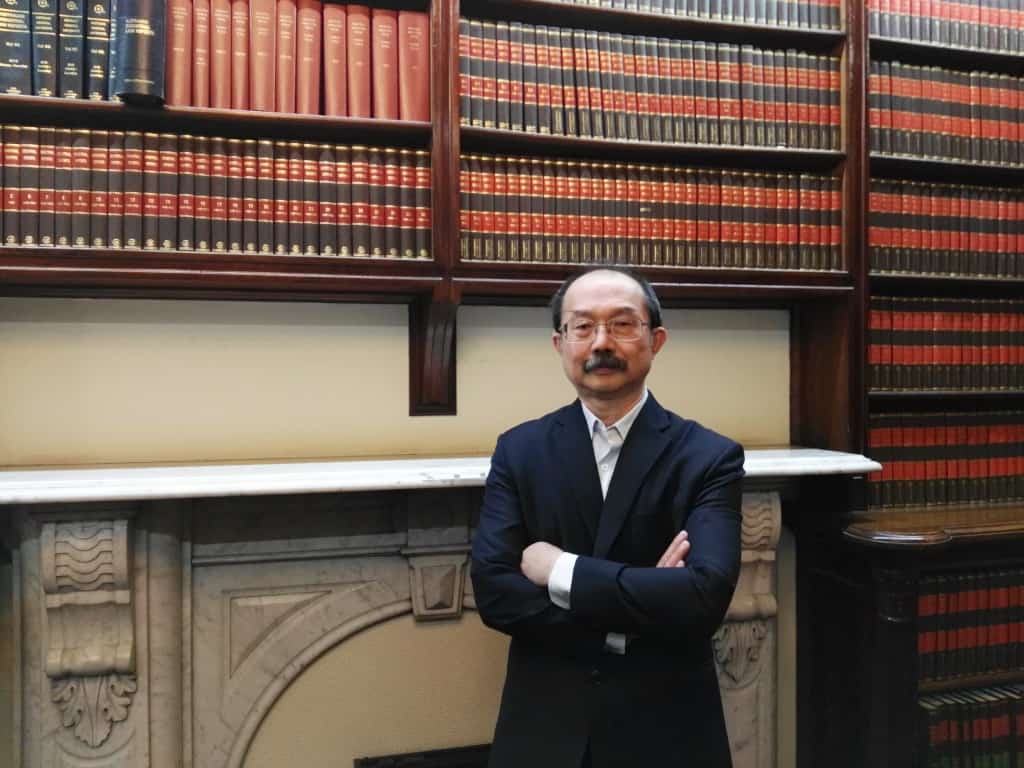
Grounds for appealing AAT decision – if the AAT affirmed the Department’s decision not to grant you a visa or cancel your visa, you can appeal or challenge the Tribunal’s decision by lodging an application to the FCC (Federal Circuit Court).
To clarify grounds for appealing AAT decision to refuse or cancel your visa, we will use the case of Onyebuchi v Minister for Immigration, Citizenship, Migrant Services and Multicultural Affairs [2020] FCA 1183.
Onyebuchi’s permanent visa was cancelled by the Department because he was imprisoned for 9 years for an offence of importing a commercial quantity of methamphetamine estimated to worth between $673,000 and $2.02mil.
The Department cancelled his permanent Partner visa (click here to learn more about Subclass 100 and Subclass 801 visa) because Onyebuchi did not pass the section 501(6)(a) test (substantial criminal record) as he was sentenced to a term of imprisonment of 12 months or more (section 501(7)(c)). The delegate of the Minister did not revoke his visa cancellation. Onyebuchi applied to the AAT for a merits review of the cancellation.
The Tribunal affirmed the delegate’s decision not to revoke the cancellation of Onyebuchi’s permanent visa under section 501CA(4).
Onyebuchi then applied to the FCA (Federal Court of Australia) as a self-represented litigant listing the following grounds for appealing AAT decision to cancel his visa:
1. the AAT’s decision was unreasonable
2 the Minister did not properly apply s501CA and 501CA(4)
3. the AAT failed to take relevant consideration into account
4. there was insufficient evidence or no evidence to support various findings made by the AAT
5. the Minister failed to properly exercise its discretion under s501C and s501CA(4)
6. the AAT’s decision involved an error of law
7. the AAT in making the decision did not comply with the rules of natural justice and/or the Applicant was denied procedural fairness.
Anderson J summarised that the above to mean:
i. the Tribunal did not give active intellectual consideration to the adverse human consequences of the revoking the mandatory cancellation of Onyebuchi’s permanent residence visa. Onyebuchi said that the Tribunal failed to take into account the serious consequences to him and his wife that would arise if he was returned to his home country, and that returning to his home country was like imposing upon his wife and himself a second prison sentence.
ii. Onyebuchi said there is insufficient evidence upon which the Tribunal could have formed the view that he posed a danger to the Australian community. He said that the Tribunal have made some favourable findings and it was unreasonable for the Tribunal to arrive at the decision not to revoke the mandatory cancellation in light of the favourable findings that it made.
Iii. Onyebuchi said that he had been denied procedural fairness by the Tribunal because it was unfair for it to conduct a hearing when he was not physically present in person at the Tribunal hearing but appear by video-link because he was in immigration detention.
The Minister’s counsel (barrister) remained the Court that it should not seek to ‘distil the substance of the Applicant’s case” from a “poorly-cast ground of review” (Singh v MIBP [2016] FCA 611; 240 FCR 1 at [34]-[35]). What this mean is that Onyebuchi’s grounds of appealing the AAT decision to cancel his visa did not identify any particular error of law that the Tribunal has committed (click here to learn more about filing FCC application).
The Minister’s counsel also said that there was no evidence that the power to require Onyebuchi to participate by way of telephone or video-link was not exercised reasonably by the Tribunal. There was no evidence that the video-link did not work properly or that he did not or could not have understood what the Tribunal said during the course of the hearing. Further, there was no realistic possibly that Onyebuchi’s appearance in person would have made any difference to the result of the Tribunal’s decision.
Which Court to appeal AAT decision?
The Court said that Onyebuchi should not have applied to the FCA complaining about the delegate’s decision not to revoke his visa cancellation. This is because section 476A only allows the FCA to hear an application if:
- the FCC transfer a proceeding to the FCA; or
- the decision is a privative clause decision under section 500 or section 501, 501A, 501B, 501BA, 501C or 501CA; or
- the FCA has jurisdiction under s 44(3) or 45(2) of the AAT Act 1975.
In short, you should not make an application to the FCA if it is a direct appeal from a decision of a delegate of the Minister. Onyebuchi should have made an application to the FCC under section 476A(1)(b).
Self-represented litigant
You should be aware that it is not for the Court to find jurisdictional error for you (BHK15 v MIBP [2016] FCA 569) because it would place the judge too close to the position of an advocate for you. The judge is an independent and impartial adjudicator of both parties’ competing claim (Onyebuchi v Minister for Immigration, Citizenship, Migrant Services and Multicultural Affairs [2020] FCA 1183 at [68]).
AAT decision is unreasonable, illogical or irrational
The test for unreasonableness is not a test which necessarily refers to your own sense of unfairness or unreasonableness.
The test for unreasonableness requires “illogicality” or “irrationality” sufficient to give rise to jurisdictional error must mean the decision is 1 at which no rational or logical decision-maker could arrive on the same evidence (Minister for Immigration and Citizenship v SZMDS [2010] HCA 1; 240 CLR 611 at [130]).
A decision is not illogical or irrational or unreasonable simply because 1 conclusion has been preferred to another possible conclusion.
For a decision to be set aside for jurisdictional error based on illogical or irrational findings of fact or reason requires “extreme” illogicality or irrationality to be present (ARG15 v MIBP [2016] FCAFC 174; 250 FCR 109 at [47]).
Failure to take into account a relevant consideration
To argue that the Tribunal had failed to take into account a relevant consideration, the Member must fail ‘to take into account a consideration’ which he or she is “bound” to take into account in making that decision.
Not every consideration that the Tribunal is bound to take into account, but fails to take into account, will be considered a jurisdictional error. If the law gives the Tribunal the discretion then it would not be a jurisdictional error if it did not consider the matter raised or before it.
Denied procedural fairness if asked to attend hearing by telephone
While it can be appreciated why applicant would have a preference to appear in person at all hearings. But this is not what the law of procedural fairness required. The rules of procedural fairness do not have an immutably fixed content (Snedden v Minister for Justice for the Commonwealth of Australia [2014] FCAFC 156 [175]-[178]).
What will be both sufficient and necessary to ensure a fair hearing will depend on, and vary with, the context in which the Tribunal acts.
The AAT Act s 33(1) allows the Tribunal “for the purposes of a hearing … may allow or require a person to participate by telephone or by means of other electronic communications equipment.
What is required by procedural fairness is a fair hearing, not a fair outcome (SZBEL v MIMIA [2006] HCA 63; 228 CLR 152 at [25]).
In short, there is no requirement on the Tribunal to ensure you are present in person before it.
Australian migration law is complex and difficult to understand, contact our immigration lawyer for a consultation (fee applies) to help understand the grounds for appealing AAT decision to refuse or cancel your visa..

 041 222 4020 or WeChat: AUDvis
041 222 4020 or WeChat: AUDvis
This article is not intended to be or taken as migration legal advice. The author of this article disclaims any liability for any action or omission on the information provided or not provided in this article. You should always consult an immigration lawyer or a registered migration agent to form an informed opinion on your immigration matter.



